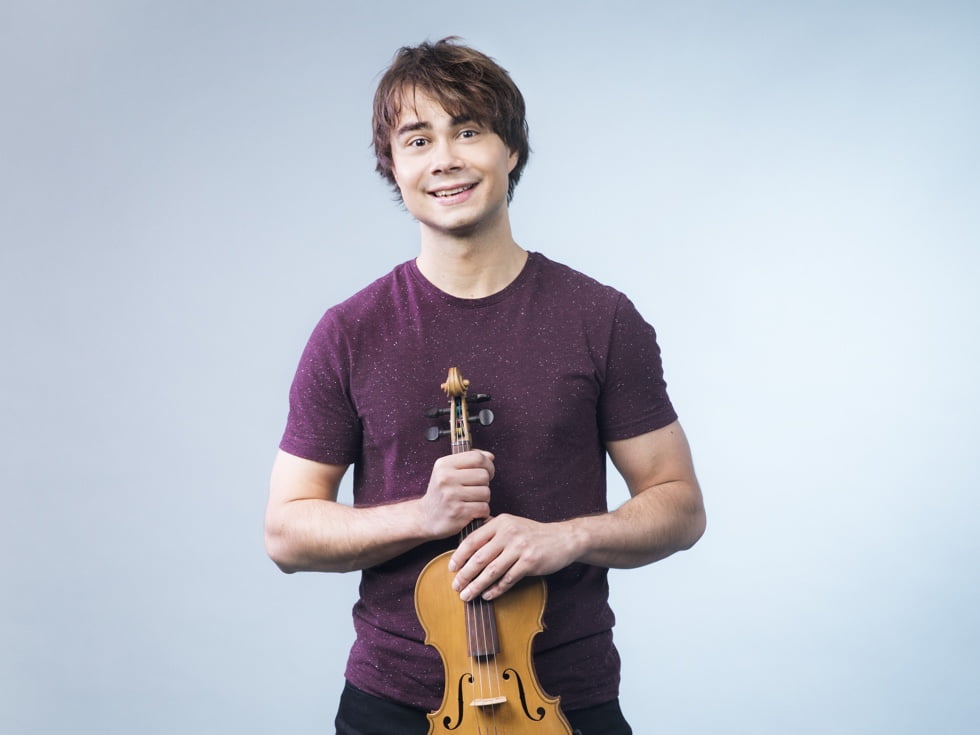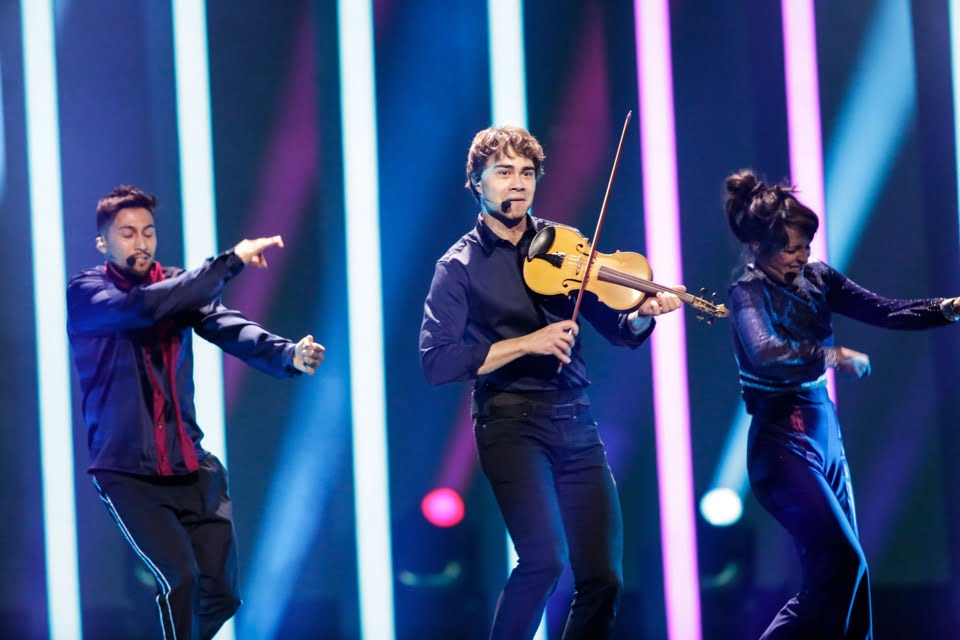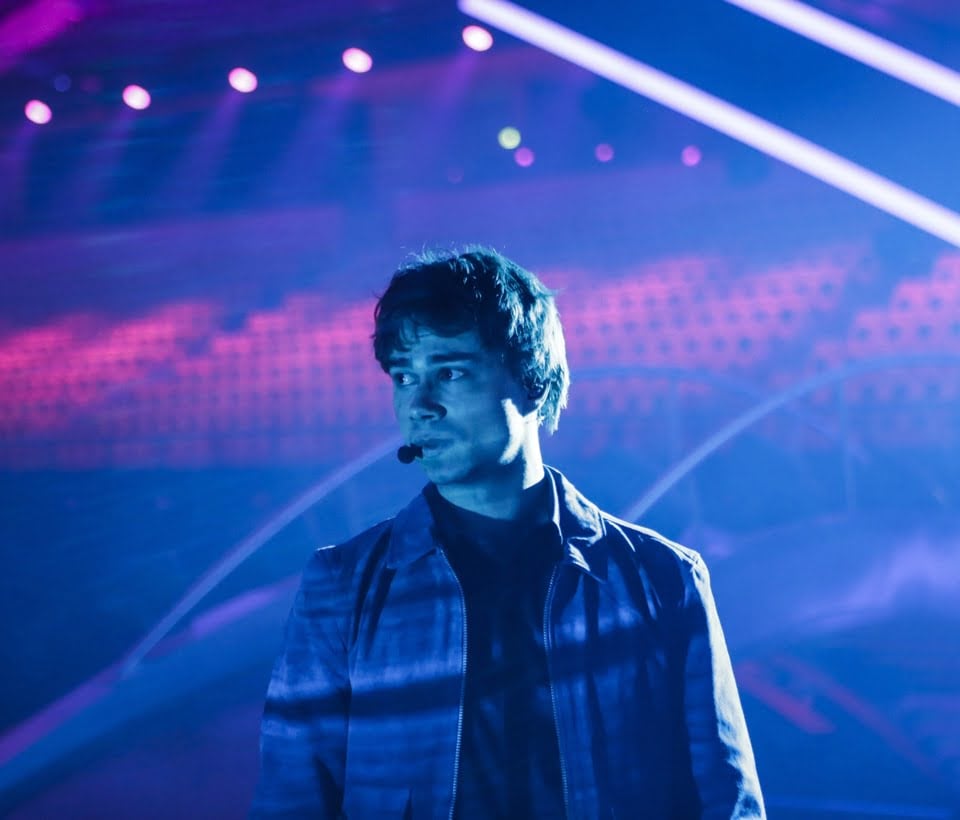Few Eurovision winners have left as lasting an impression as Alexander Rybak. The Belarusian-Norwegian violinist and singer captured Europe’s heart in 2009 and remains one of the contest’s most recognisable faces.
Alexander Rybak was born in Minsk, then part of the Soviet Union, in 1986. When he was four years old, his family emigrated to Norway, settling in Nesodden just outside Oslo.

Both his parents were professional musicians. His father was a violinist and his mother a pianist. As such, they nurtured his musical talent from an early age.
Rybak took up the violin at age five and quickly showed exceptional promise. His classical training would later become a signature feature of his pop career, helping him stand out in an industry dominated by conventional singer-songwriters.
He studied at the Barratt Due Institute of Music in Oslo, where he deepened his knowledge of performance, composition and musical theory.
Eurovision Glory in 2009
Rybak’s breakthrough came in 2009 when he won Melodi Grand Prix, Norway’s national Eurovision selection show, with an original song titled Fairytale. Inspired by Slavic folklore and a past relationship, the track fused pop structure with folk fiddling and a fairy-tale narrative.
At the Eurovision final in Moscow, Rybak delivered a dynamic and charming performance complete with violin flourishes and high-energy choreography. It earned him a then-record 387 points, which was more than any contestant had ever received under the traditional scoring system.
The victory marked Norway’s third win at Eurovision (following Bobbysocks in 1985 and Secret Garden in 1995), and it remains the country’s most emphatic.
Fairytale quickly became a European hit. It topped charts across the continent and earned Rybak international fame. Back home in Norway, he became a cultural icon overnight, frequently appearing on television, in concerts, and in public life.
A Music Career Beyond Eurovision
Although Rybak is best known for his Eurovision triumph, his career since 2009 has included a wide variety of creative pursuits. He has released several studio albums in multiple languages, including English, Norwegian, and Russian, and experimented with pop, folk, and classical genres.
Read about Norway's Hardanger Fiddle: With a haunting sound created by its extra sympathetic strings, the Hardanger fiddle is a fascinating part of Norwegian folk music and Norway’s cultural heritage.
He’s also made numerous TV appearances, including talent competitions, talk shows, and holiday specials across Europe. In Norway, he has remained a popular personality, often performing at national celebrations and charity events.
Rybak is also a stage performer. One of his early roles was in Fiddler on the Roof at Oslo Nye Teater, where he played the lead role of the fiddler and won the Hedda Award for Newcomer of the Year.

He has since worked on various musical theatre productions and has written music for both stage and film.
Rybak’s 2018 Return to Eurovision
Nearly a decade after his first win, Rybak surprised Eurovision fans by returning to Melodi Grand Prix in 2018 with a new song titled That’s How You Write a Song.
With a playful, self-aware theme and energetic visuals, the song was a tribute to the creative process, and perhaps a knowing wink to his Eurovision legacy.
The performance featured colourful graphics, choreography, and of course, a trademark violin solo. He easily won the national final and represented Norway once again, this time in Lisbon.
British newspaper Metro were among those expecting it to perform well: “This song works perfectly on the 2018 Eurovision Song Contest stage and the first act of the second Eurovision semi final is going to blaze a path straight to the final with That’s How You Write A Song.”
While That’s How You Write a Song advanced from the semi-final to the grand final, it failed to make a major impact on the scoreboard. Rybak ultimately placed 15th, a respectable result, but a far cry from his triumphant 2009 appearance.
Still, the return showed how much affection the public still held for him. Eurovision fans old and new were reminded of his charisma, stage presence, and musical versatility.
Life After the Spotlight
After 2018, Rybak’s public presence began to shift. In 2020, he shared a personal update with his followers: years of overwork, stress, and pressure had led to anxiety and depression.
He had quietly taken a step back to recover and refocus. The announcement was met with support and understanding from fans and the wider Norwegian public.
Later that year, he began studying film music composition at Columbia College in Chicago, signalling a new chapter in his career.
Rather than chasing chart success, Rybak seemed intent on building a sustainable and meaningful path through music behind the scenes. His focus turned to composing, teaching, and creating educational content for young musicians.

He remains active on social media, particularly YouTube, where he shares violin performances, tutorials, and playful reinterpretations of well-known songs. His fans span generations and nationalities, and his Eurovision legacy continues to draw new audiences to his work.
A Eurovision Legacy
More than a decade on from his Eurovision win, Alexander Rybak still holds a special place in Norway’s cultural landscape. He represents a unique combination of musical talent, international success, and down-to-earth charisma.
While he may never again reach the dizzying popularity of his 2009 victory, he remains an influential artist and a source of pride for many Norwegians. His story—of an immigrant child who became a national icon—is itself a kind of modern fairytale.
Fairytale is still regularly ranked among the greatest Eurovision songs of all time. Its blend of pop and folk, its fresh staging, and Rybak’s natural charm helped define a new era of Eurovision. Even casual fans remember the infectious chorus and the signature violin line.
Over the years, the song has been reinterpreted, parodied, and covered across Europe. It’s frequently used as an example of what Eurovision success looks like: unique, memorable, and unmistakably personal.


Was just looking at the odds on Norsk tipping for Eurovision tonight. I almost spat my coffee out when it became glaringly apparent just how “butt hurt” Norway still is from the UK not giving any votes to Norway in the ESC last year.
In the long list of odds, I saw one, just one entry, which said “ender Storbritannia på sisteplass i finalen?” – For non Norwegian speakers, that says “Will England come last in the finals? followed by the option to vote and win some money.
Best laugh I had all day 🙂 serious business this Eurovision yes sir!
For what it’s worth, I’m British and I think Norway did deserve a good vote 🙂 but not sure Alex’s song is winning material this time around amid some strong competition.
Given that every major bookmaker places the UK last (250/1 to win with Bet365, for example), I’m not sure you have a point 🙂